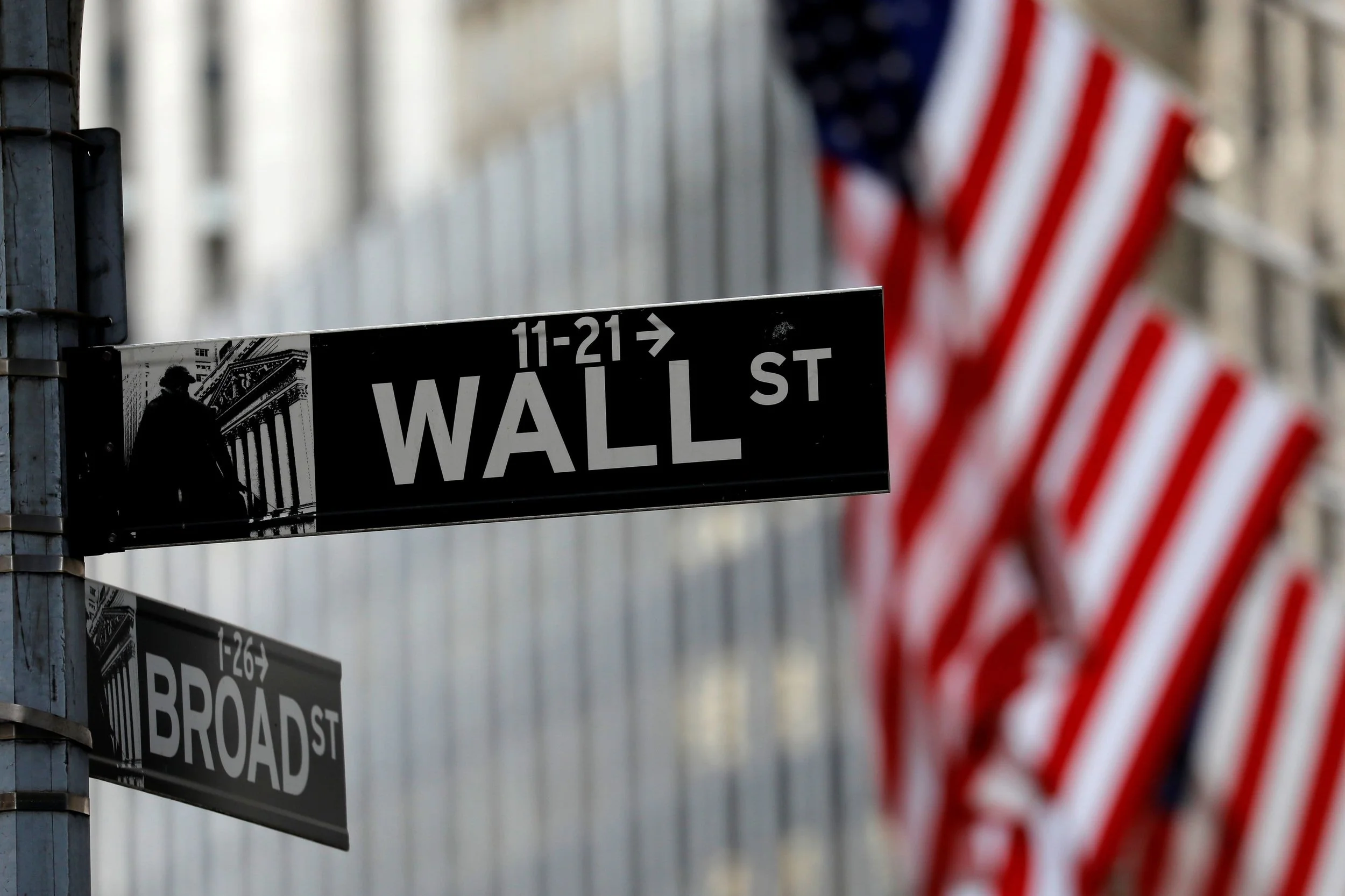Should You Invest in Commercial Real Estate or The Stock Market?
Let's talk about money.
Do you have a bit of it and wonder how to invest it?
As you likely know, making money is one thing; keeping and growing it is entirely another.
All financial and media industries allocate billions of dollars to influence you to spend and invest in a certain way.
Some of them are great, but most are questionable.
So, how to invest? Well, that's a huge question, one that I can't definitively answer for you. Your age, income, risk aversion, and goals … those would all have to come into the equation.
But let's break it down to two of the most well-known investing strategies … real estate and the stock market. And let's break it down further to commercial real estate.
Which is better? I have an opinion about that ...
The Pros and Cons: Commercial Real Estate vs. Stocks
This is an interesting comparison.
In many ways, commercial real estate and stock investing have similar pros and cons.
Let's simplify this section just a bit by conceding that the cons of both investment strategies are, basically, the same.
And by that, I'm referring to risk. There are others, but the risk is the big one.
If you've been around the block a few times (or at all) as an investor, you know that your ability to absorb any amount of risk is a large part of the game.
In both commercial real estate and stock investing, the risk is real. It can be mitigated by several factors such as competence, research, mentorship, and patience … but it's always going to be there.
If you want to keep and -- more importantly -- grow your money, you're going to need to take on some amount of risk.
So let's call the cons between these two strategies even and move on.
Now, where they differ in terms of the pros, in my opinion, makes all the difference in this debate ...
The Pros of Stock Investing:
Passive Income
Tax Benefits
Easier to Enter
The Pros of Commercial Real Estate Investing:
Leverage
Passive Income
Depreciation
Tax Benefits
Appreciation
You see that one list of pros is longer than the other. And I'm sure that more could be added to each (depending on who you're talking to), but I'm concerned with the basics here.
What's missing from the stocks list? Leverage, depreciation, and appreciation. And those are critical factors in your decision-making process because ...
Commercial Real Estate is Real
This is, for me, the big one.
Commercial real estate is a physical, tangible product.
It's something that you can drive to, see, and touch.
You can even live or work out of the investment you're making!
Even some of our clients do just that -- they operate their businesses from the property and allow that company, which is their active income, to pay down the mortgage and cover all expenses associated with the property.
There's value in the income and the asset itself.
And, unlike stocks (and most of your other investment options), commercial real estate has a value not only in the income and cash flow it throws off but also the land itself and the property's improvements, such as the building and infrastructure.
In a worst-case scenario where your income falls to zero because either the tenant has defaulted on their lease or has moved out, you still have valuable assets to fall back on, which certainly protects your downside.
Tangibility is ultimately stability.
Commercial real estate is also a relatively stable asset, as it can offer housing (apartment complexes and mobile home parks), services (retail or office space), or storage and manufacturing (industrial warehouses).
Because of these factors, commercial real estate often does not fluctuate and experience the roller-coaster swings that the stock market will.
Not to mention the peace of mind you'll have by being able to drive by the asset.
And last, but certainly not least ...
Commercial real estate offers historically higher returns.
When it comes to overall returns, nothing beats real estate.
As I've already said above, not only can you make near-instant regular cash flow a reality from an excellent commercial real estate investment, but there's the building and land itself in the deal that appreciates over time.
And you can do a 10-minute research run online to see how land investments have done historically!
How to Diversify Your Commercial Real Estate Investments
Alright, I think we've established my take on this debate: Commercial real estate is a much better investment than stocks.
But there's a question I get that keeps coming around; it goes something like this, "Tyler, it's so easy to diversify in the stock market, how can that diversification be matched in commercial real estate?"
Glad you asked. Well, I guess they asked, but let's assume you're asking too.
The answer depends on just how aggressive you are as an investor.
Of course, anyone can diversify in both asset classes, and many experts would advise precisely that.
But I'll go all in -- again -- and state that I think commercial real estate is the ticket. And I'm not only saying that my money is where my mouth is on this topic … 99% of my personal portfolio is in commercial real estate.
And, at the risk of sounding like a braggart, I'm doing just fine. My personal wealth is hitting the target goals I want it to, and our business is growing like never before.
Now, I understand, commercial real estate may not be for you.
But let me ask, are you sure about that? I mean, have you done the research yourself, or is it possible you're operating on the advice of a relative or a friend who's got a lot of opinions but never had skin in the game?
Here's the bottom line: Diversification can be an investor's best friend. Here are three ways you can diversify as a commercial real estate investor ...
There are many ways to diversify your commercial real estate investment portfolio.
First, a commercial property usually means multiple tenants. And more tenants = less risk.
Think about it -- if you have a single-family home and your tenant moves out, you now have a 100% vacancy rate.
However, if you own a 50-unit multifamily complex and one tenant moves out, you will hardly notice the impact on your bottom line.
Second, if you're investing with an established real estate operator, you'll be able to select which asset type, where the asset is located, and proposed project type.
And, depending on the amount of your investment capital and/or how you slice it up, you can own multiple multi-tenant buildings that are producing cash flow and appreciating nearly every day you hold them (historically, of course).
Third, there is nearly an unlimited amount of different types of investments you can make in the commercial real estate realm.
That is, there are at least five primary types of commercial real estate investment and nearly unlimited variations of deals you can structure within these types …
Multifamily
Office
Industrial
Retail
Hospitality
To me, that's the very definition of diversification!
It's maybe not as easy as punching a few buttons on the computer and getting yourself into the stock market, but if you partner with the right operator, commercial real estate investing can be incredibly passive and deliver a much bigger return.
So, what does all this come down to? Who wins the battle of commercial real estate vs. stock investing?
I Believe Investing in Commercial Real Estate is The Best Bet That Can Bring The Best Return
So there you have it, my opinion on the commercial real estate investing vs. stock investing debate.
As I said at the start of this article, I can't decide this for you, and none of this is straightforward financial advice.
That said, in my experience, commercial real estate is a far superior investment vehicle.
While you need to make your own investment decisions, if you're sitting on $100,000 or more, I'd like to talk and show you what we've been able to do in the last few years.
I think you might find it interesting.








If you’ve been investing for a while, you know the grind.
You’ve closed deals, managed contractors, worked through leases, and seen both wins and setbacks. Maybe you’ve owned single-family rentals, a few duplexes, or even some small commercial buildings. You understand the fundamentals: how to run numbers, navigate debt, and keep properties occupied.
But here’s a question that hits at a different level: are your investments giving you leverage or just more responsibility?
As your portfolio grows, so does the complexity. More tenants often mean more phone calls. Bigger buildings bring additional systems, staff, and liability. And while your equity might be growing on paper, your time can get stretched thin across too many directions.
That’s why more experienced investors are quietly shifting toward asset classes that offer something rare in commercial real estate: simplicity that still delivers strong returns.
Two of the most overlooked categories in this space are flex industrial and industrial outdoor storage (IOS).
They’re not flashy. You won’t find them in luxury investor decks or high-end brochures. But these properties produce solid returns, attract long-term tenants, and are surprisingly light on operational headaches. Best of all, they give seasoned investors a way to keep growing without being consumed by the demands of their portfolio.
In this post, we’ll walk through:
What makes flex and IOS so attractive
The numbers behind why they work
How they fit into a growing portfolio
And why they might be the most strategic asset class you haven’t explored yet
This is not about going bigger for the sake of scale. It’s about going smarter.
Because the goal is not more units. It’s more freedom.